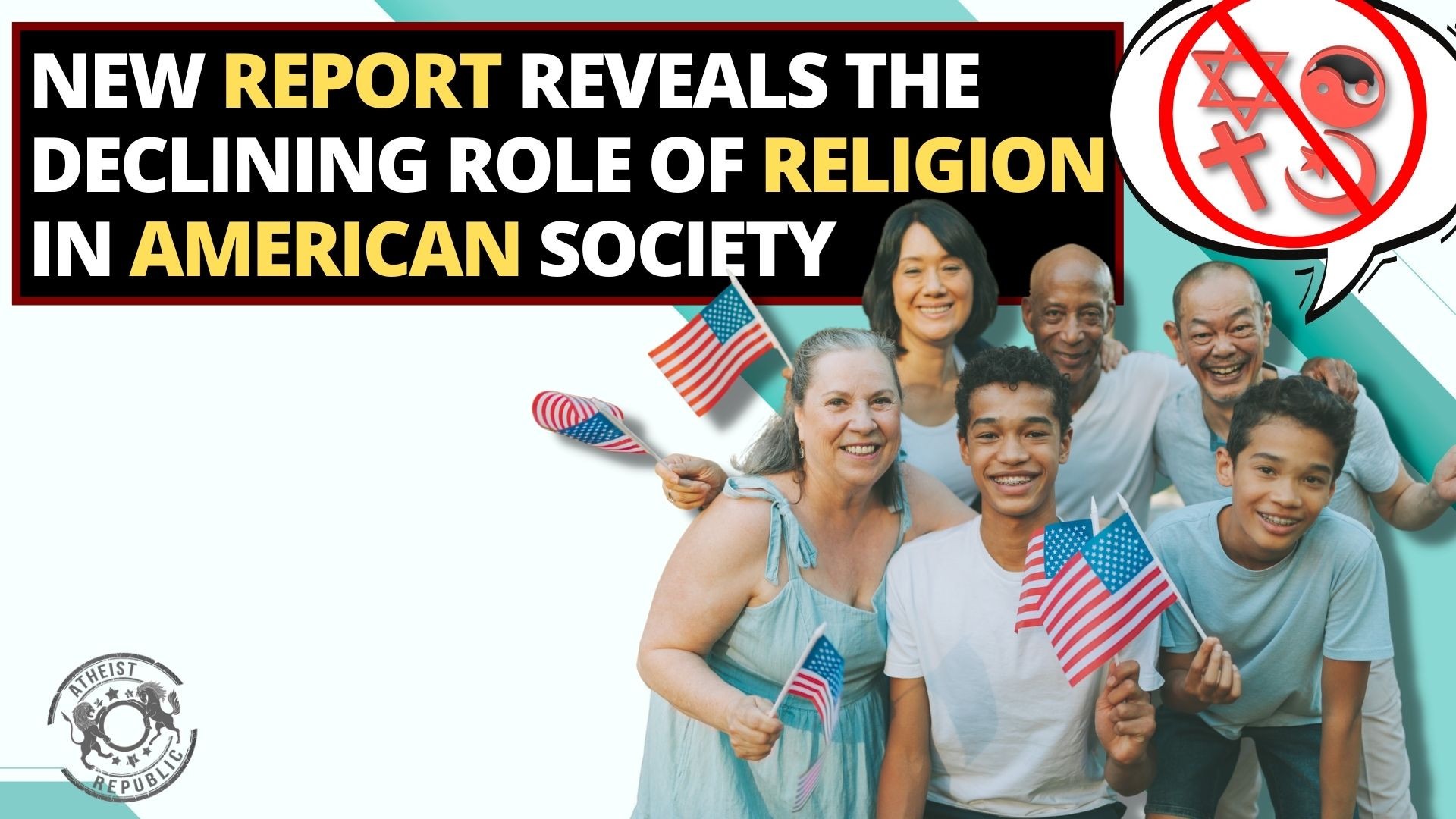
A new report from a non-profit and non-partisan research center reveals that fewer Americans see religion's importance in their lives than a decade ago, showing how the religious landscape in the United States has changed dramatically.
"The importance of religion in the lives of Americans is on the decline."https://t.co/w7t12q89Sm
— Secular Student Alliance (@SecularStudents) May 16, 2023
In the report titled “Religion and Congregations in a Time of Social and Political Upheaval,” the Public Religion Research Institute (PRRI) studied the changing dynamics of religion as the United States continues to experience massive changes in its political and cultural landscape amidst events like the COVID-19 pandemic, the 2020 elections that resulted in the insurrection at the US Capitol, and battles for reproductive and LGBTQIA+ rights across state legislatures.
Reasons for leaving respective faith:
-78% said no longer believing in the teachings of their religion
-43% cited negative religious teachings abt L.G.B.T. people
-32% cited scandals involving church leaders
New PRRI survey.@MikeOLoughlin, @americamaghttps://t.co/Cw5lAJFzcj— PRRI (@PRRIpoll) May 18, 2023
For the report, the PRRI surveyed 6,600 adults across all 50 states. The study looked at the importance of religion among Americans and delved deep into other aspects of their religious attitudes, like religious attendance, discussions on complex issues and topics, and churches being involved in politics.
Like most studies from other research centers, the PRRI found that the religious landscape in the United States is becoming more dynamic and diverse. Only 42% of Americans identify as white Christians, compared to 54% in 2006 and 72% in 1990. On the other hand, the proportion of religiously unaffiliated Americans grew from 16% in 2006 to 27% today.
Nevertheless, most Americans still identify as Christian, with Christians of color (Black, Hispanic, Asian, Native American, and Mixed) making up a quarter (25%) of the country’s population. Combining the number of white and people of color who identify as Christians, they make up around 67% of the country’s population.
PRRI found that Christian congregations are still largely racially segregated.
Though the U.S. is becoming more diverse, the vast majority of Christian churchgoers report that their congregations are "mostly monoracial." @jasonderose @NPR. New study.https://t.co/hzJ4cRHg8z— PRRI (@PRRIpoll) May 19, 2023
The diversifying religious landscape in the United States also affects how Americans see religion in their lives. Only 16% of Americans today agree that religion is the most important thing in their lives, compared to 20% in 2013. 36% of Americans also say religion is one of many important things in their lives, compared to 43% a decade ago.
The number of Americans considering religion unimportant in their lives grew from 19% in 2013 to 29% a decade later. The importance of religion among Catholics and Mainline Protestants has somewhat declined in the last decade, according to Melissa Deckman, CEO of the Public Religion Research Institute (PRRI).
"Americans are becoming increasingly likely to become religiously unaffiliated," Deckman said about the survey, adding that the data from the study reflects a growing trend among Americans.
The ranks of the nonreligious are rising. Good news. https://t.co/HxJlRMl5Q7 pic.twitter.com/vatxosVl9K
— Bruce Bartlett (@BruceBartlett) May 18, 2023
Political issues have also been at the forefront among many religious American individuals and churches as the country experiences massive changes in issues like racial justice, abortion, LGBTQIA+ rights, and rising white Christian nationalism.
For instance, 63% of Black Protestants believe that their congregation should be involved in social issues, even if doing so means facing challenging conversations about them, which reflects the historical connection between Black churches and the Civil Rights Movement.
Black Protestants are the only Christian group in which a majority (63%) believes that congregations should get involved in social issues even if it means having difficult conversations.
Democratic churchgoers (56%) are more likely than GOP churchgoers (40%) to agree.— PRRI (@PRRIpoll) May 19, 2023
While only Black Protestants recorded having a majority of believers who think congregations must be involved in social issues, 71% of all churchgoers agree that churches should provide perspectives on pressing social issues. Most Christian denominations agree with this idea, including white evangelical Protestants (75%) and all Catholics (67% for White Catholics and 66% for Hispanic Catholics).
